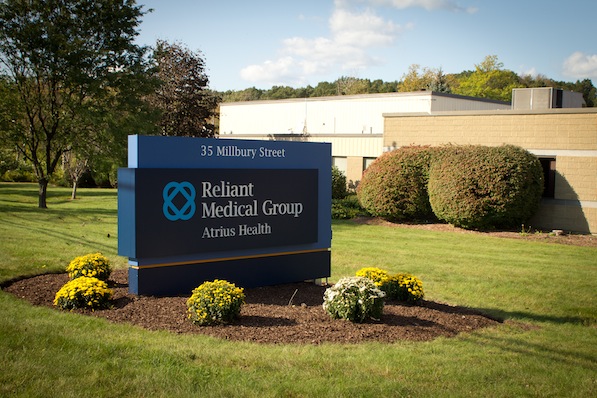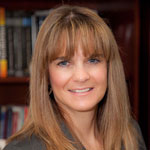
When Reliant Medical Group was founded in 1929, it was called the Fallon Clinic. More importantly, it was physician-owned. For decades, physicians determined how the Worcester, Massachusetts-based clinic was run. However, when the organization moved to a not-for-profit designation in 2005, a new vision began to emerge.
Although physicians and other staff members had traditionally been handled differently, Randi Nichols—who came to Reliant in 2004 after spending most of her career in the high-tech industry—felt there should be one set of HR practices, policies, and execution standards for everyone at Reliant. “There were separate operational approaches for physicians and nonphysicians,” says Nichols, who serves as Reliant’s executive vice president of human resources and operational support services. “The different sets of rules created issues with the nonphysician staff, which affected the organizational culture.”
Over a four-year period, Nichols worked to convince leadership to move to a more inclusive system. “It was a long process,” she says. “It was all about undoing a culture, shifting from a divided culture to a more inclusive and collegial workplace.”
To promote the new across-the-board policies, Nichols reworked the company’s human-resource materials. Training also played a crucial role, though Reliant’s emphasis on education extends beyond introducing new policies. Employees can take leadership-development courses and get one-on-one managerial coaching. “A strategy I have always found to be successful is to develop a robust training function,” Nichols says. “It’s extremely important to have internal opportunities for growth, and to offer different venues for people to learn.”
To provide clear goals that employees know how to meet, Reliant compares performance to a set of defined objectives. Measurable outcomes help the company avoid employee-relation issues, as people understand what is expected of them. Reliant also offers a number of incentives to increase employee satisfaction. “Low-cost, high-result benefits are best,” Nichols says. “We do things other organizations may not.”
Some of Reliant’s perks include a $2,000 adoption-assistance credit and the ability to take paid time off to volunteer. Employees who fall on hard times can receive assistance from the charitable HAVEN Fund, which is supported by employee donations. Such strong employee benefits have helped the company attract workers based on its total compensation package “Our company strategy is to have better benefits than our competitors,” Nichols says. “Being only one hour from Boston means we are often competing for talent with Boston companies that may pay more.”

The focus on employee satisfaction appears to be paying off. Reliant Medical Group recently was named one of the best places to work in Worcester by the Worcester Business Journal, securing first place honors in the General Excellence category.
But securing the satisfaction of its employees is only one of Reliant’s many agendas. The company also recently embarked on another culture-related transformation, aimed at enhancing patient experience. “Like many health-care systems, we found ourselves designing and delivering services in a manner that was often designed with physicians and staff in mind, rather than patients,” Nichols says. “We have begun a journey to ensure that the patient is always at the center of the care experience.”
As the executive overseeing the transformation, Nichols is worried that the work might be perceived as just another item on employees’ to-do lists. To sell the new program, she and her colleagues used best-practice data and information to emphasize that Reliant needed to commit effort and resources toward enhancing patients’ perception of care.
Linking the endeavor to the organization’s essential need for growth and sustained financial health, Nichols’s team introduced a program of more frequent and defined contact points to engage patients, along with several other new initiatives, in the program’s first year. “We also recruited physician champions who work as peer mentors to physicians with lagging patient-satisfaction ratings,” says Nichols, noting that, “getting physicians on board with the changes is crucial to creating a distinctively positive patient experience—physicians listen to physicians.”
Similarly, HR professionals listen to other HR professionals. To maintain an awareness of management best-practice methods and to make new industry contacts, Nichols belongs to several professional associations. And, after being recommended by a human resources colleague, she was recently appointed to the board of the Center for Women & Enterprise, a nonprofit dedicated to helping entrepreneurs start their own businesses.
Nichols has also been a member of the American Medical Group Association’s HR Leadership Council since 2006, and she served as its chair for three years. Currently, Nichols serves as a board member for the Senior Human Resources Network, an organization that helps executives develop better human resource strategies. Nichols credits her affiliations with providing new professional experiences and opportunities. “I’ve been asked to serve as a speaker at national conferences,” she says. “These opportunities have come as a result of my association [involvement].”
On top of its structural adjustments, Reliant made one more modification in 2011. After 82 years operating as the Fallon Clinic, the health-care provider changed its name to Reliant Medical Group. The name change was intended to differentiate the medical practice from Fallon Community Health Plan, an insurance provider that had become a separate organization in 2004.After several years of working to recreate both the client and patient experience under a new brand and vision, the changes also definitively established Reliant as its own entity.
“The company has undergone substantial, positive cultural changes since I started,” Nichols says. “We’re lucky to have a very committed workforce, including a very engaged middle- and senior-leadership team—which makes change easier to implement and sustain.”

